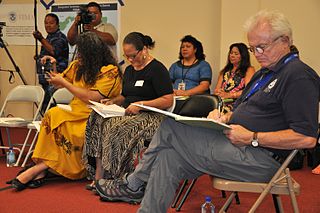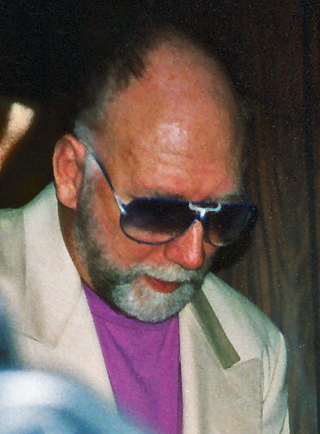
Public relations (PR) is the practice of managing and disseminating information from an individual or an organization to the public in order to influence their perception. Public relations and publicity differ in that PR is controlled internally, whereas publicity is not controlled and contributed by external parties. Public relations may include an organization or individual gaining exposure to their audiences using topics of public interest and news items that do not require direct payment. The exposure is mostly media-based, and this differentiates it from advertising as a form of marketing communications. Public relations aims to create or obtain coverage for clients for free, also known as earned media, rather than paying for marketing or advertising also known as paid media. But in the early 21st century, advertising is also a part of broader PR activities.
Corporate governance are mechanisms, processes and relations by which corporations are controlled and operated ("governed").

Corporate social responsibility (CSR) or corporate social impact is a form of international private business self-regulation which aims to contribute to societal goals of a philanthropic, activist, or charitable nature by engaging in, with, or supporting professional service volunteering through pro bono programs, community development, administering monetary grants to non-profit organizations for the public benefit, or to conduct ethically oriented business and investment practices. While once it was possible to describe CSR as an internal organizational policy or a corporate ethic strategy similar to what is now known today as Environmental, Social, Governance (ESG); that time has passed as various companies have pledged to go beyond that or have been mandated or incentivized by governments to have a better impact on the surrounding community. In addition national and international standards, laws, and business models have been developed to facilitate and incentivize this phenomenon. Various organizations have used their authority to push it beyond individual or even industry-wide initiatives. In contrast, it has been considered a form of corporate self-regulation for some time, over the last decade or so it has moved considerably from voluntary decisions at the level of individual organizations to mandatory schemes at regional, national, and international levels. Moreover, scholars and firms are using the term "creating shared value", an extension of corporate social responsibility, to explain ways of doing business in a socially responsible way while making profits.

Donald Paul Bellisario is an American television producer and screenwriter who created and wrote episodes for the TV series Magnum, P.I. (1980), Tales of the Gold Monkey (1982), Airwolf (1984), Quantum Leap (1989), JAG (1995), and NCIS (2003). He has often included military veterans as characters.
Secular ethics is a branch of moral philosophy in which ethics is based solely on human faculties such as logic, empathy, reason or moral intuition, and not derived from belief in supernatural revelation or guidance—a source of ethics in many religions. Secular ethics refers to any ethical system that does not draw on the supernatural, and includes humanism, secularism and freethinking. A classical example of literature on secular ethics is the Kural text, authored by the ancient Indian philosopher Valluvar.

William W. George is an American businessman and academic. He is a professor of management practice, and a Henry B. Arthur Fellow of Ethics at Harvard Business School. He previously served as chairman and chief executive officer of Medtronic.
Corporate communication(s) is a set of activities involved in managing and orchestrating all internal and external communications aimed at creating a favourable point of view among stakeholders on which the company depends. It is the messages issued by a corporate organization, body or institute to its audiences, such as employees, media, channel partners and the general public. Organizations aim to communicate the same message to all its stakeholders, to transmit coherence, credibility and ethics.
The public relations officer (PRO) or chief communications officer (CCO) or corporate communications officer is a C-suite level officer responsible for communications, public relations, and/or public affairs in an organization. Typically, the CCO of a corporation reports to the chief executive officer (CEO). The CCO may hold an academic degree in communications. A Public Relations Officer has a positive public opinion of an organization and increased brand knowledge as their first concern. They access and monitor their client's online presence to prepare the right message to convey. They can also coach clients on the importance of self-image and how to communicate with the media. A Public Relations Officer aims to positively handle and communicate information internally and externally.
Arthur Wilson Page, was a vice president and director of AT&T from 1927 to 1947. He is sometimes referred to as "the father of corporate public relations" for his work at AT&T. The company was experiencing resistance from the public to its monopolization efforts. Page is said to have established a series of public relations heuristics generally referred to as "the Page Principles".
The Zicklin School of Business is the business school of Baruch College. It was established in 1919 and is named after financier and alumnus Lawrence Zicklin. Zicklin is the largest business school in the United States, with more than 10,000 students enrolled in its programs. Zicklin and the Murray Koppelman School of Business at Brooklyn College are the only two units of the City University of New York that are accredited by the Association to Advance Collegiate Schools of Business (AACSB).

Eugene Harold Robinson is an American newspaper columnist and an associate editor of The Washington Post. His columns are syndicated to 262 newspapers by The Washington Post Writers Group. He won a Pulitzer Prize in 2009, was elected to the Pulitzer Prize Board in 2011 and served as its chair from 2017 to 2018.
Organizational ethics is the ethics of an organization, and it is how an organization responds to an internal or external stimulus. Organizational ethics is interdependent with the organizational culture. Although it is to both organizational behavior and industrial and organizational psychology as well as business ethics on the micro and macro levels, organizational ethics is neither organizational behavior nor industrial and organizational psychology, nor is it solely business ethics. Organizational ethics express the values of an organization to its employees and/or other entities irrespective of governmental and/or regulatory laws.
John Wallis "Jack" Rowe is an American businessman and academic physician, who served as Chairman and CEO of Aetna Inc., a large health insurance company based in Connecticut, titles he retired from in February 2006.
The Donald P. Bellisario College of Communications is the undergraduate and graduate college dedicated to the study of journalism, mass communications and media at Pennsylvania State University. Re-established in 2017 under its new name after the producer, screenwriter and benefactor Donald P. Bellisario, the Bellisario College is home to four departments: Advertising/Public Relations, Journalism, Film Production and Media Studies, and Telecommunications and Media Industries. Offering five undergraduate majors, a master's degree in media studies, and a Ph.D. program in mass communications, the college is the largest accredited program of its kind in the United States. The college's facilities are located on the University Park campus.

Mark Feeney is an author and arts writer for The Boston Globe for over four decades. He is the author of two books, Nixon at the Movies (2004) and Nixon and the Silver Screen (2012). Feeney is a native of Cambridge, Massachusetts.
Stakeholder management is a critical component in the successful delivery of any project, programme or activity. A stakeholder is any individual, group or organization that can affect, be affected by, or perceive itself to be affected by a programme.
Sustainability standards and certifications are voluntary guidelines used by producers, manufacturers, traders, retailers, and service providers to demonstrate their commitment to good environmental, social, ethical, and food safety practices. There are over 400 such standards across the world.
Situational Crisis Communication Theory (SCCT,), is a theory in the field of crisis communication. It suggests that crisis managers should match strategic crisis responses to the level of crisis responsibility and reputational threat posed by a crisis. SCCT was proposed by W. Timothy Coombs in 2007.

Betsy Ann Plank is commonly referred to as the first lady of public relations. In her 63-year-long career, she achieved many first in public relations leadership positions for women.
Social accounting is the process of communicating the social and environmental effects of organizations' economic actions to particular interest groups within society and to society at large. Social Accounting is different from public interest accounting as well as from critical accounting.







